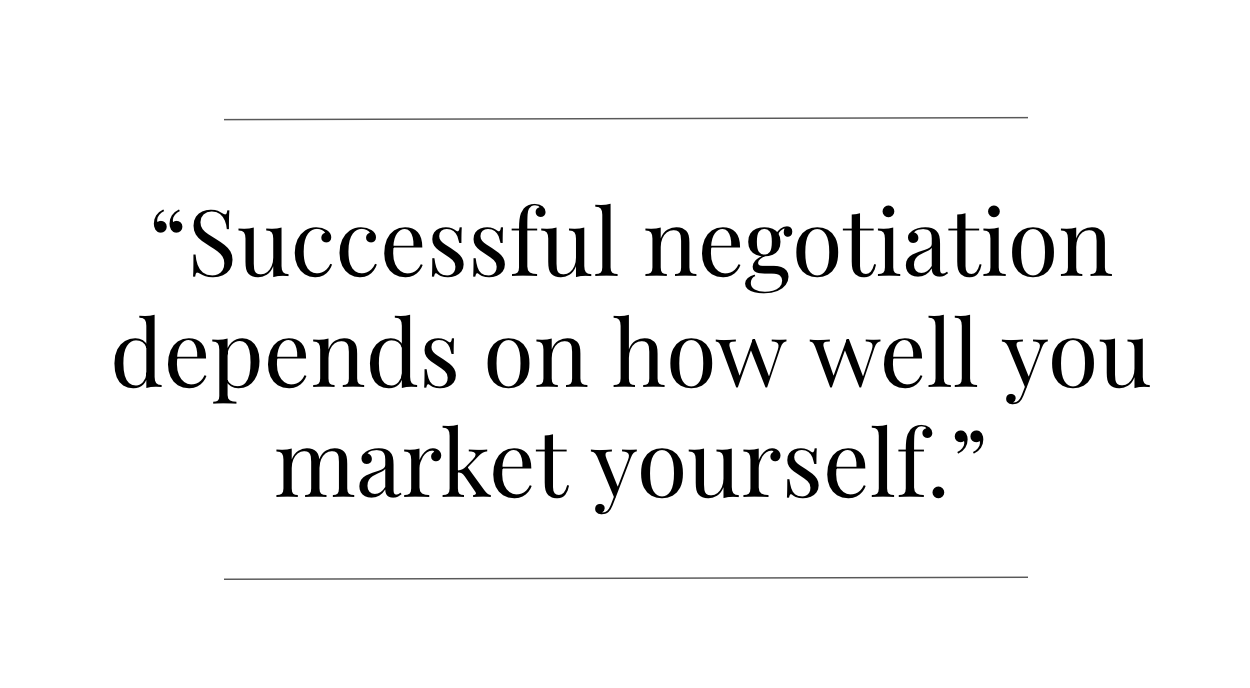SALARY NEGOTIATION - That Dreaded Part of the Hiring Process
By Bill Dempsey
January 8, 2020
One of the most commonly asked questions I get as a recruiter has to do with salary negotiation. Few people I speak with feel comfortable with this part of the hiring process. Several have told me how much they actually dread negotiating salary.
Salary negotiation is not something necessarily intuitive and not something we are typically taught when starting our careers. Negotiation is a learned skill and like many learned skills, practice will make you much better at it.
Kwame Christian, Director of the American Negotiation Institute, tells us that "we all negotiate, however, we all don't negotiate well". As parents, husbands and wives, we routinely find ourselves negotiating to achieve a desired outcome. Sometimes it is as simple as getting our children to clean their rooms or achieve their potential in school, or getting the green light from our spouse to head out on a weekend trip with a group of friends. We can sometimes surprise ourselves at how well we negotiate when we really desire a certain outcome. But when it comes to negotiating a salary for a new position, something that can have a substantial impact on our quality of life, we freeze and take the path of least resistance.
Kwame Christian states that negotiation is like a chess game. There are different pieces on the board. With this in mind, he recommends looking at all aspects of an offer and not just salary. Employee benefits, time off, tuition reimbursement, expense coverage for conferences, day care availability and gym memberships are a few examples of other considerations prior to entering the negotiation phase of offer acceptance.
One cannot be too prepared in negotiations according to Kwame. In fact, delaying negotiation until you have had ample time to review all aspects is something he highly recommends. That said, time is not always our friend during the interview process. All the more reason to ask the right questions during the process in order to ascertain just where you stand at the time an offer is made.
Nobody faults someone trying to negotiate the best possible deal for themselves, but there is a line that we can cross to our detriment. Too high a counter offer can signal your lack of understanding of current market conditions or potentially an unrealistic view of your value in the market. Multiple counters can signal difficulty in reaching consensus and raise flags as to how easy a person you will be to work with.
Kwame refers to a strategy known as "anchoring", requesting a salary higher than you believe an employer may be willing to go, but not too high as to price yourself out of consideration and have the hiring manager reaching out to their second choice candidate to schedule another round of interviews.
No doubt, negotiation can be stressful. But if you understand some basic skills in achieving mutually beneficial outcomes, both you and your new employer will be looking forward to your employment start date. The higher the salary and thereby the greater amount of responsibility, the more nuance that can exist in the negotiation process. Having a coach to guide you through this process can keep the stress level manageable and result in a final offer that will more than justify the cost of obtaining such advice.

